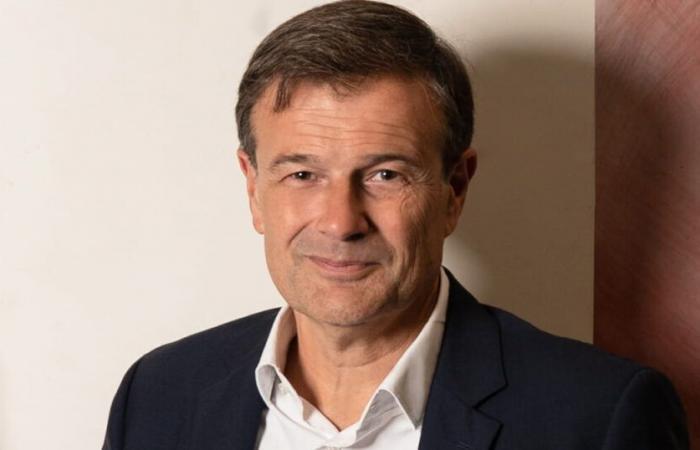The Philharmonie de Paris is celebrating its 10th anniversary. The project was initially widely criticized due to its cost. Today the praise has replaced the criticism and the good figures confirm this success. Its general director Olivier Mantei was this Tuesday, January 14, the guest of Stéphane Pedrazzi in Les Voix de l’Economie.
Setting up this musical mecca in eastern Paris was a risky bet. But this major project, initiated by the musician and teacher Olivier Boulez, is hailed by all as a popular success, with the inclusion of a new audience, and a very diverse offering.
“At the Philharmonie and the Cité de la Musique, we come to see an exhibition, we go through concerts, workshops, symposiums or conferences. We’re going to the media library and we’re going to have a drink”says Olivier Mantei, general director of the Parisian musical institution. This transversality is “one of the main factors” of the success of the Philharmonie, “a success inversely proportional to the fears we had at its creation”.
A “Generation Philharmonie” thirty year olds
The other challenge won by the Philharmonie is to attract an increasingly young audience, “10% are under 28 years old” underlines Stéphane Pedrazzi. A “Generation Philharmonie”, paccording to the expression of Olivier Mantei, which refers to spectators in their thirties. The general director deciphers this progressive phenomenon, which is based on a long-term strategy: “Very early on, this public appropriated a territory, a playground, through workshops. When we grow up, we move from a workshop to a concert hall.” The Philharmonie has also been able to attract great music lovers, more accustomed to the west of Paris: “the good news is that [ce public] made the effort to come, and a new audience from the East took over his room.”
This desire for openness is also seen in the programming, with the highlighting of female conductors, thanks to the Maestra competition: “it’s the only project we would like to see disappear”mischievously declares Olivier Mantei, who would like not to have to fight for parity. “But we’re not there, even if we’re making progress,” he whispers.
Patrons “extremely present”
To carry out and continue all these projects, solid funding is required. Before the pandemic, the Philharmonie de Paris had a ratio of 60% public subsidies and 40% own resources. “This ratio has changed, it is around 50-50, which is good news from the point of view of own resources, but it is also the sign of a withdrawal of public subsidies”deplores the guest of Voices of the Economy. This withdrawal was able to be offset by ticketing revenue, which increased by 17%, sponsorship with a jump of 65% and external services.
-Also read
It’s surprising, but in this period of deterioration in the economic climate, patrons are “extremely present” assures Olivier Mantei. He sees the impact of the societal dimension of the project, the desire to integrate excluded audiences. “This is what I think mobilizes partners even more”he continues.
Beatrice Mouedine
Find Classic news



